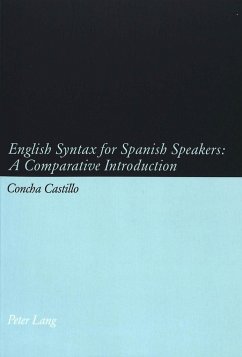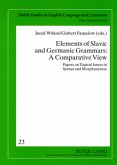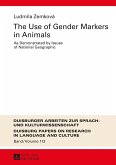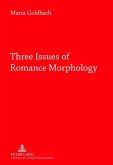This textbook provides a syntactic analysis of the four basic types of sentences in English: declarative, interrogative, exclamative and imperative. It establishes a systematic comparison between such sentence-types in English and their counterparts in Spanish. This volume is intended for students of linguistics at intermediate to upper-intermediate level and has the following goals: firstly, to describe and analyse the grammar of English (and correspondingly of Spanish) simple sentences in order to increase the reader's knowledge and competence. Secondly to introduce Government and Binding theory or Principles and Parameters theory with regard to the domain of simple sentences. Thirdly, to provide the reader with a tool that enables him or her to understand the goals of linguistic theory and the ways in which linguistic hypotheses can be formulated and justified. Each chapter of this volume contains an exercise section that emphasises the main points presented in the text.
Bitte wählen Sie Ihr Anliegen aus.
Rechnungen
Retourenschein anfordern
Bestellstatus
Storno









